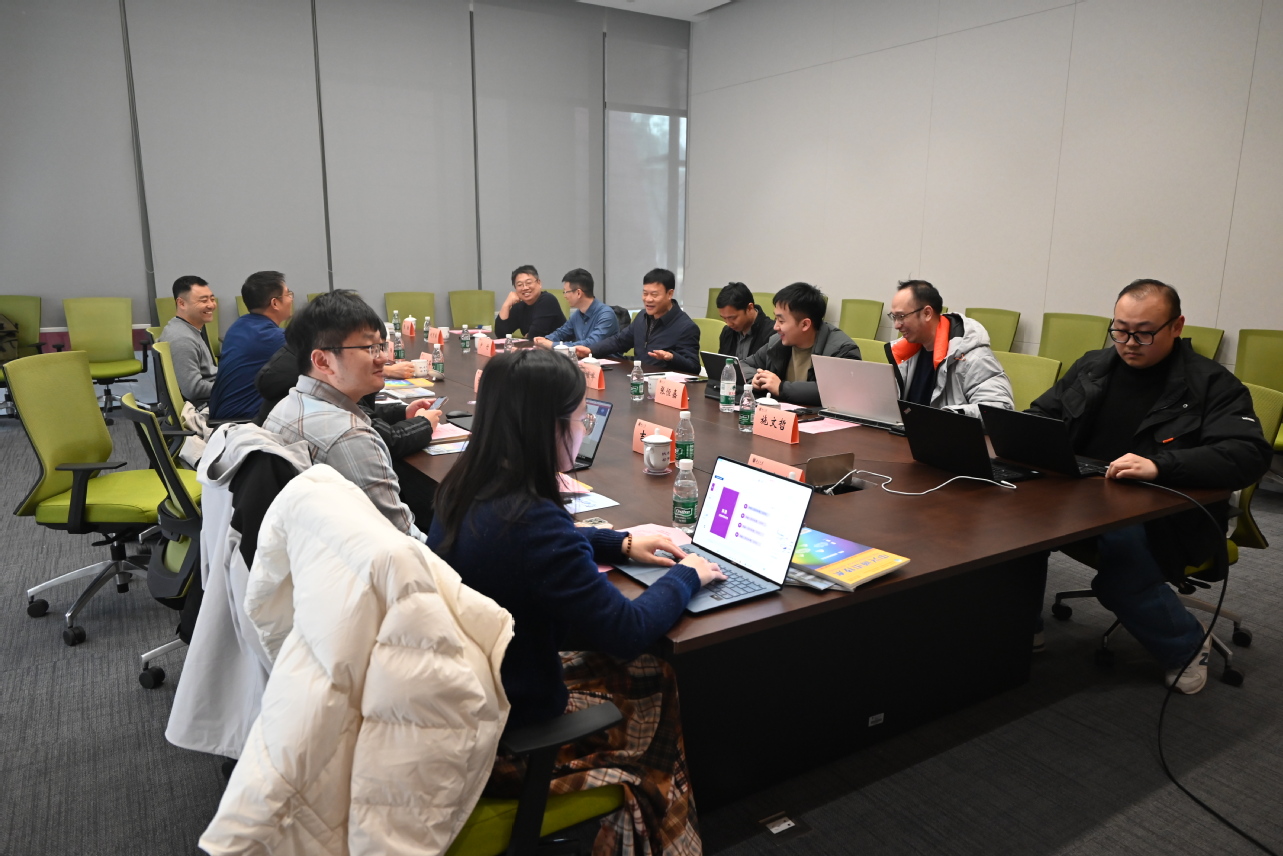On February 27, 2025, the ZTE-Nanjing University Industry-Academia-Research (IAR) Cooperation Exchange Meeting was successfully held in Room 124, West District of Nan Yong Building. The meeting was attended by experts from ZTE Corporation, including Huang Xinming, Executive Editor-in-Chief of ZTE Technology Magazine; Lu Dan, Director of ZTE's IAR Office; Zhang Han, Chief Engineer of ZTE's Industrial Digitalization Solutions; Zeng Zhaojun, Deputy Director of ZTE's IAR Office; Liu Yanbin, Product Manager of ZTE's Industrial Digitalization Solutions Department; and technical experts Shi Wenzhe and Zhang Hengjia from the same department.
Representing Nanjing University were Yang Sijun, Deputy Director of the University's Science and Technology Research Institute; Gao Yang, Party Secretary and Executive Dean of the School of Intelligence Science and Technology, Associate Professor Yi Zili, Associate Professor with Tenure-track Zhao Fang, Xu Ke, Ji Wei, and Assistant Professor with Tenure-track Shi Jiaqi from the same school.
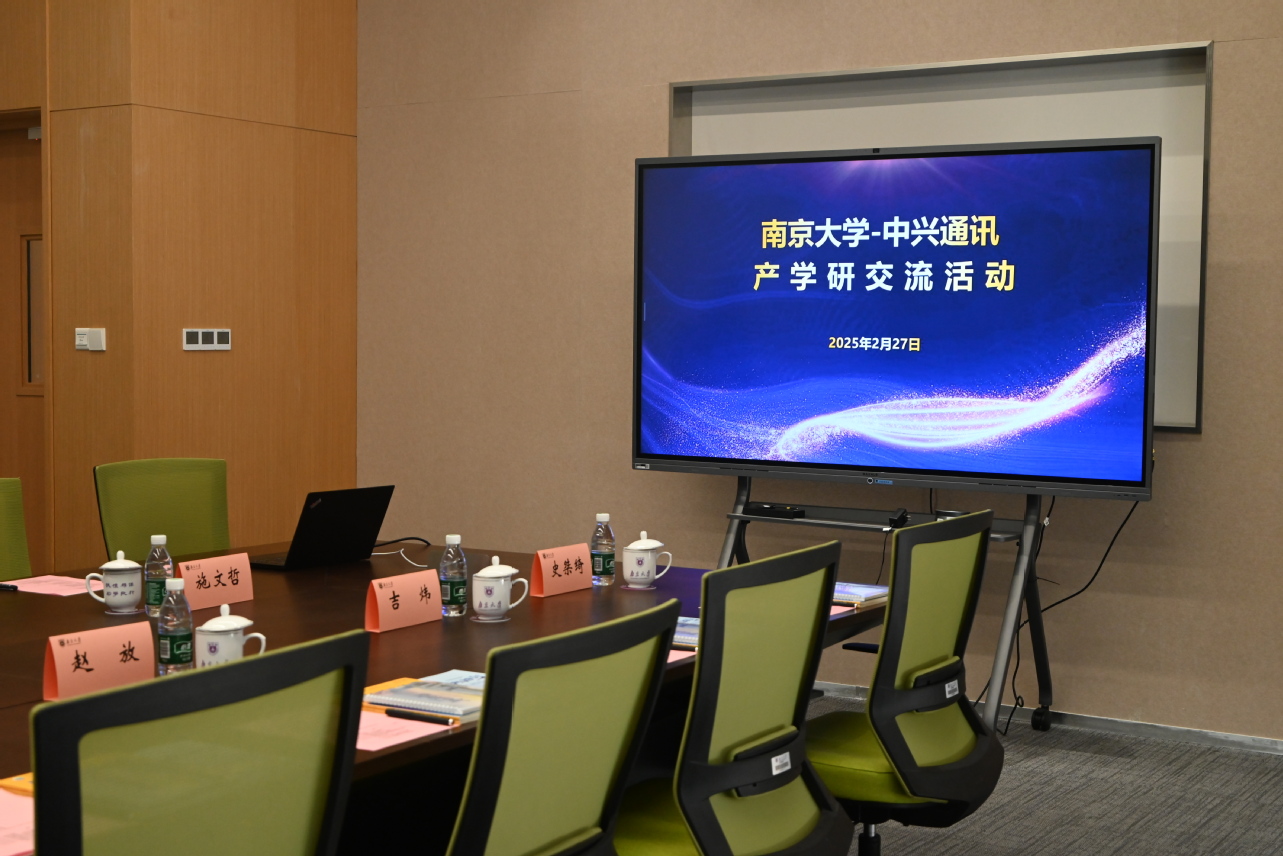
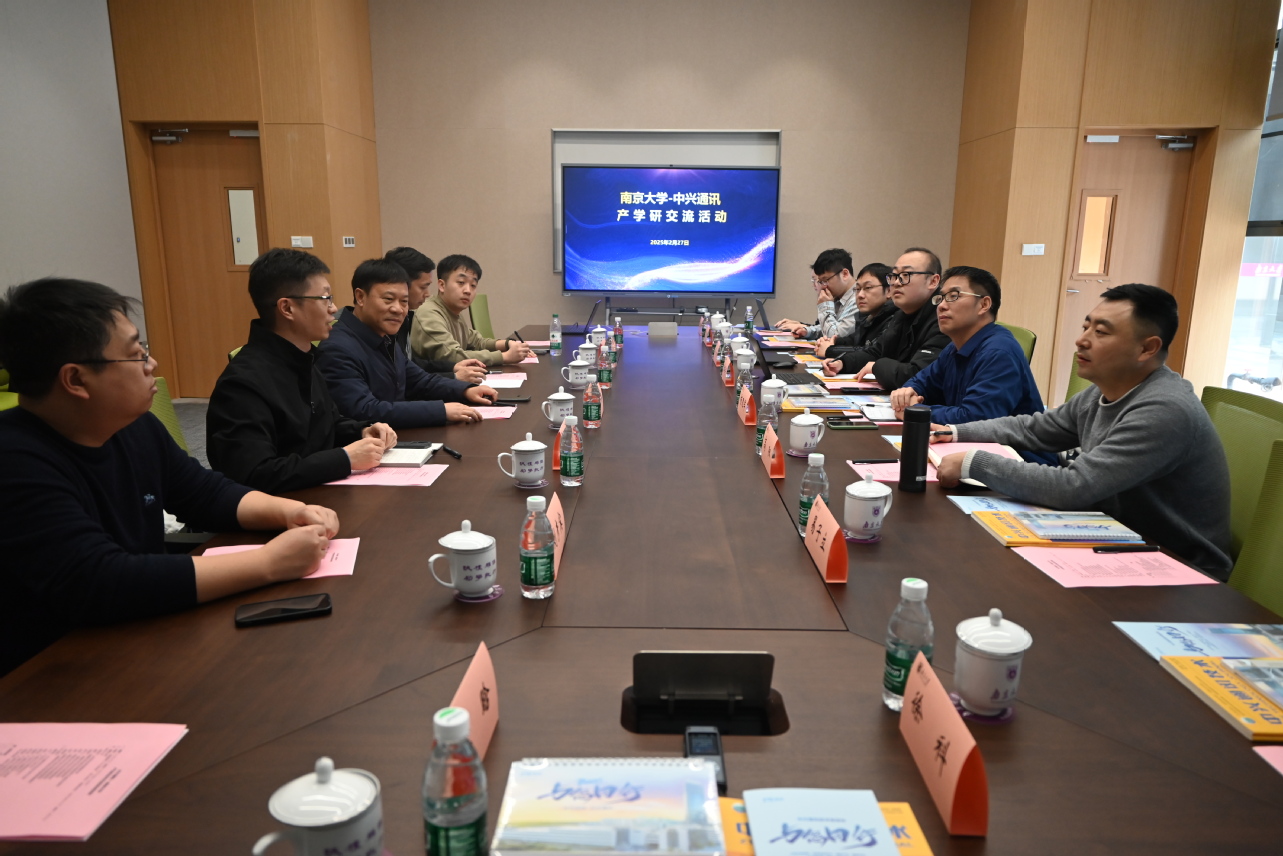
The meeting began with Lu Dan introducing the ZTE experts present and their respective areas of work. He noted that all the experts had extensive experience in IAR cooperation and highlighted that this meeting was was part of an ongoing partnership between Nanjing University and ZTE.
Yang Sijun delivered the opening remarks, introducing the construction of Nanjing University and its Suzhou campus, and providing an overview of the university's previous IAR cooperation. He emphasized the importance of engineering disciplines in the construction of the Suzhou campus and expressed his hope that this exchange would lead to a clear long-term cooperation plan between Nanjing University and ZTE. He also extended a warm welcome to the ZTE delegation.
Huang Xinming also mentioned that the establishment of Nanjing University's Suzhou campus signifies the university's continuous progress. ZTE has been promoting IAR cooperation for over a decade. He said that exchanges are the beginning of cooperation, and they had brought projects to this meeting to facilitate cooperation and ensure their implementation. He added that both parties should maintain long-term contact, whether online or offline, and look forward to more potential cooperation opportunities.
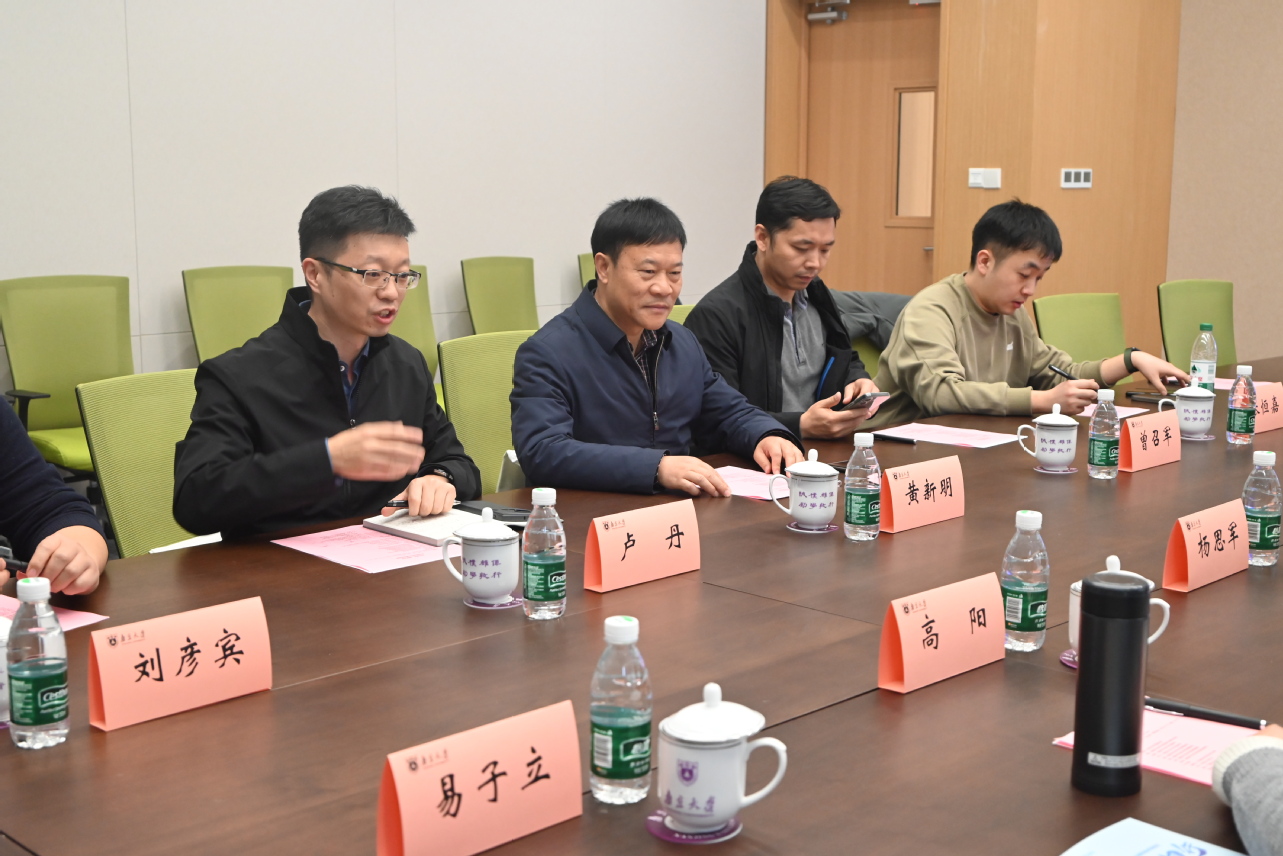
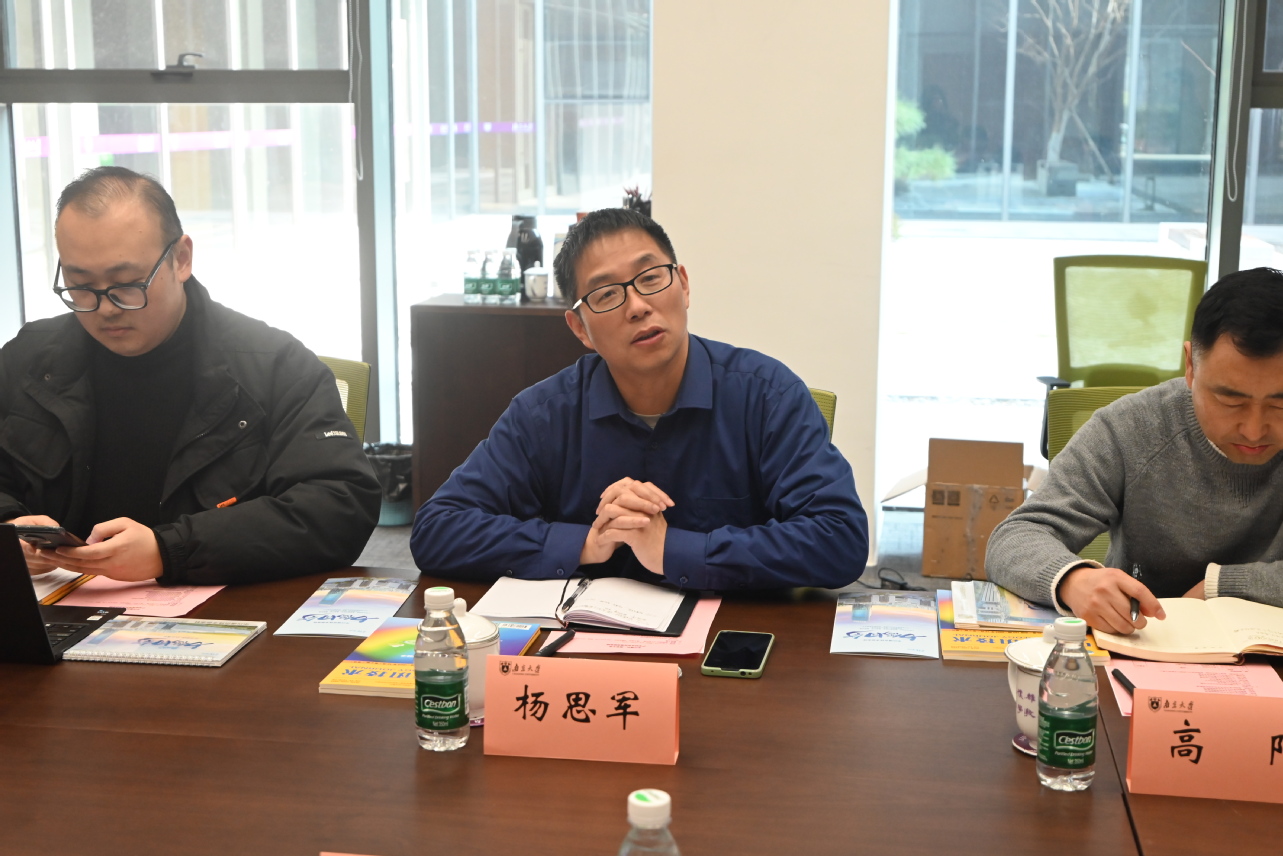
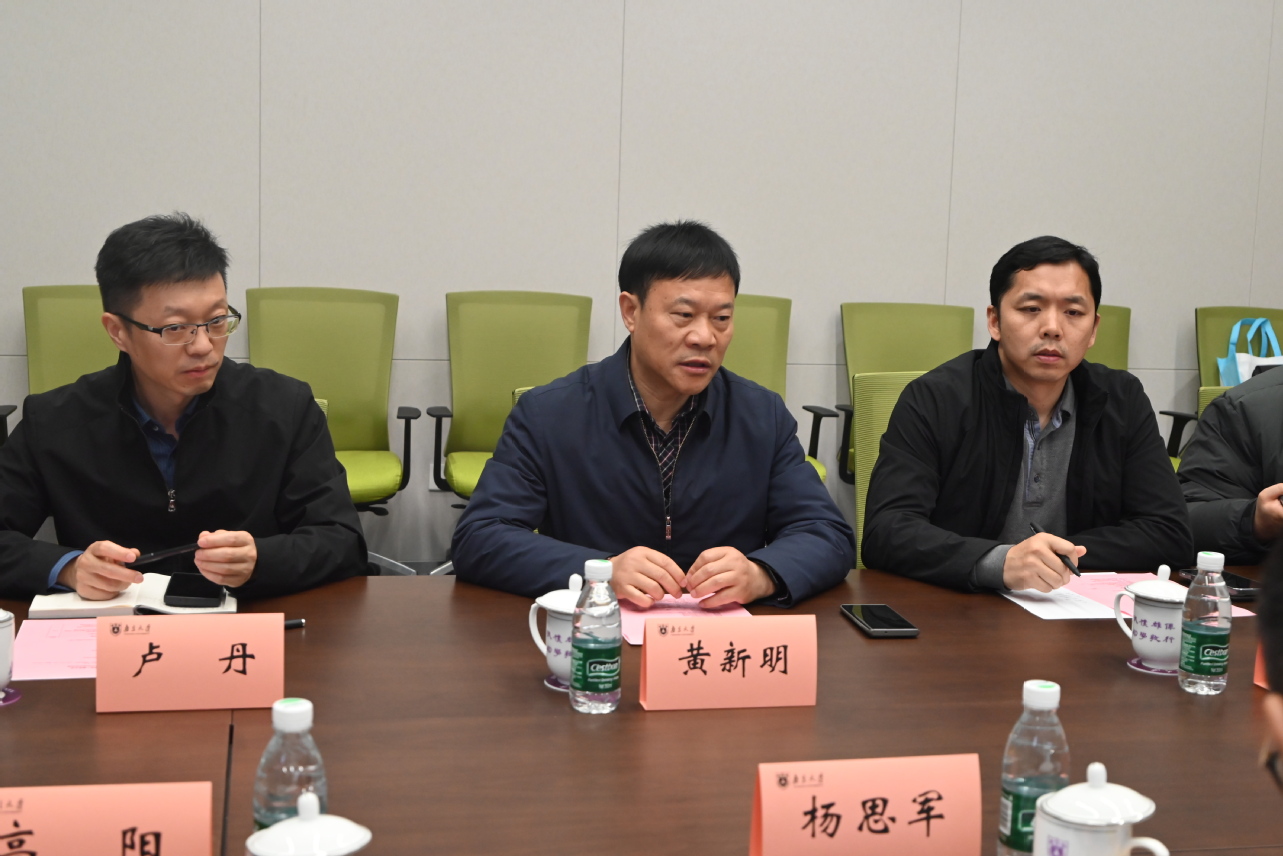
Zhang Zhenyu provided a detailed introduction of the School of Intelligence Science and Technology, covering aspects such as the disciplinary foundation, construction, direction, faculty strength, teaching reform projects, IAR cooperation, research projects, research achievements, research platform construction, and social services. He noted that although the school was relatively young, it had developed rapidly, with a faculty size now reaching 33 people. In terms of IAR cooperation, the school had already established joint laboratories with several companies and had rich experience in such cooperation.
Zeng Zhaojun introduced ZTE's past IAR cooperation forums, special publications, cooperation projects, and the establishment of postdoctoral workstations. He also highlighted the key research areas ZTE planned to focus on in 2025. Subsequently, he discussed cooperation matters with the school's teachers from various aspects, including project operation timelines, procedures, application review, and cooperation planning.
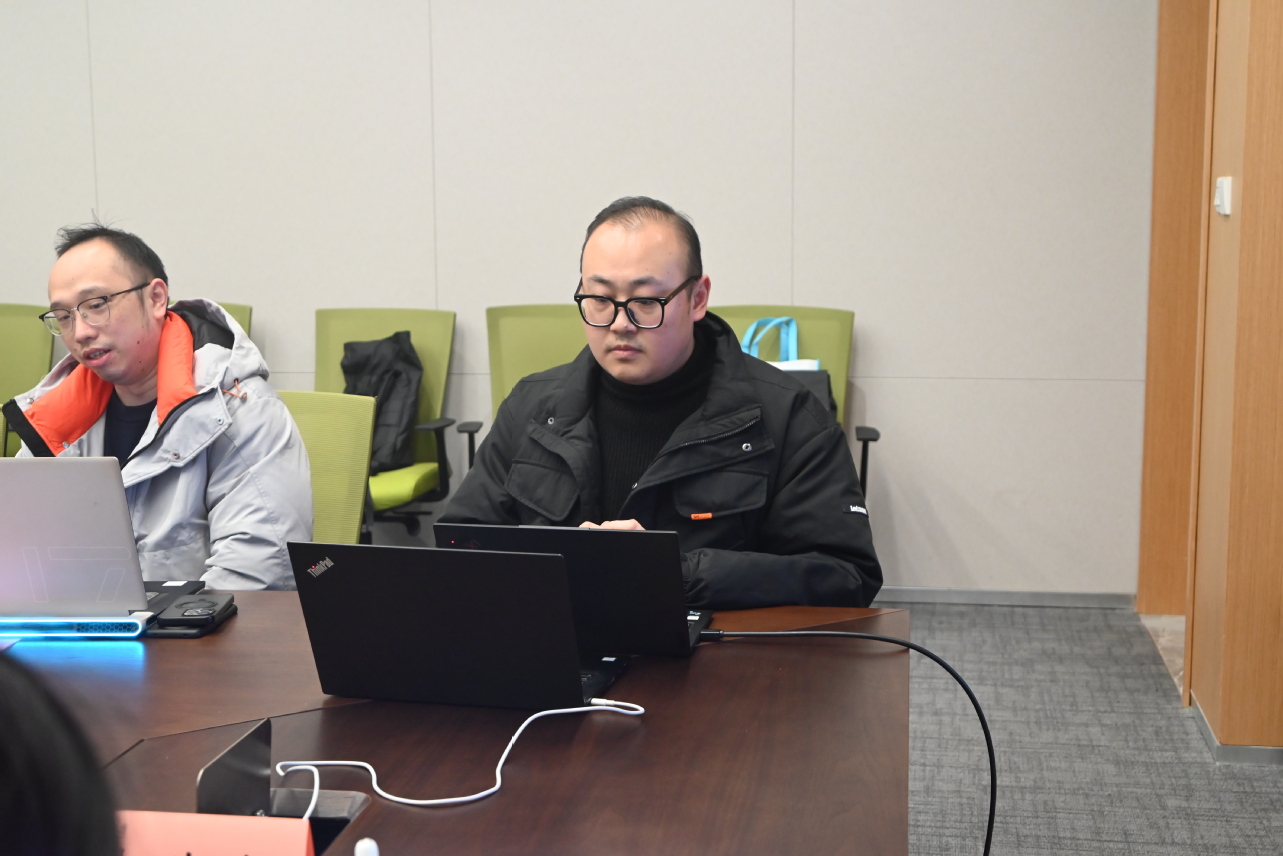
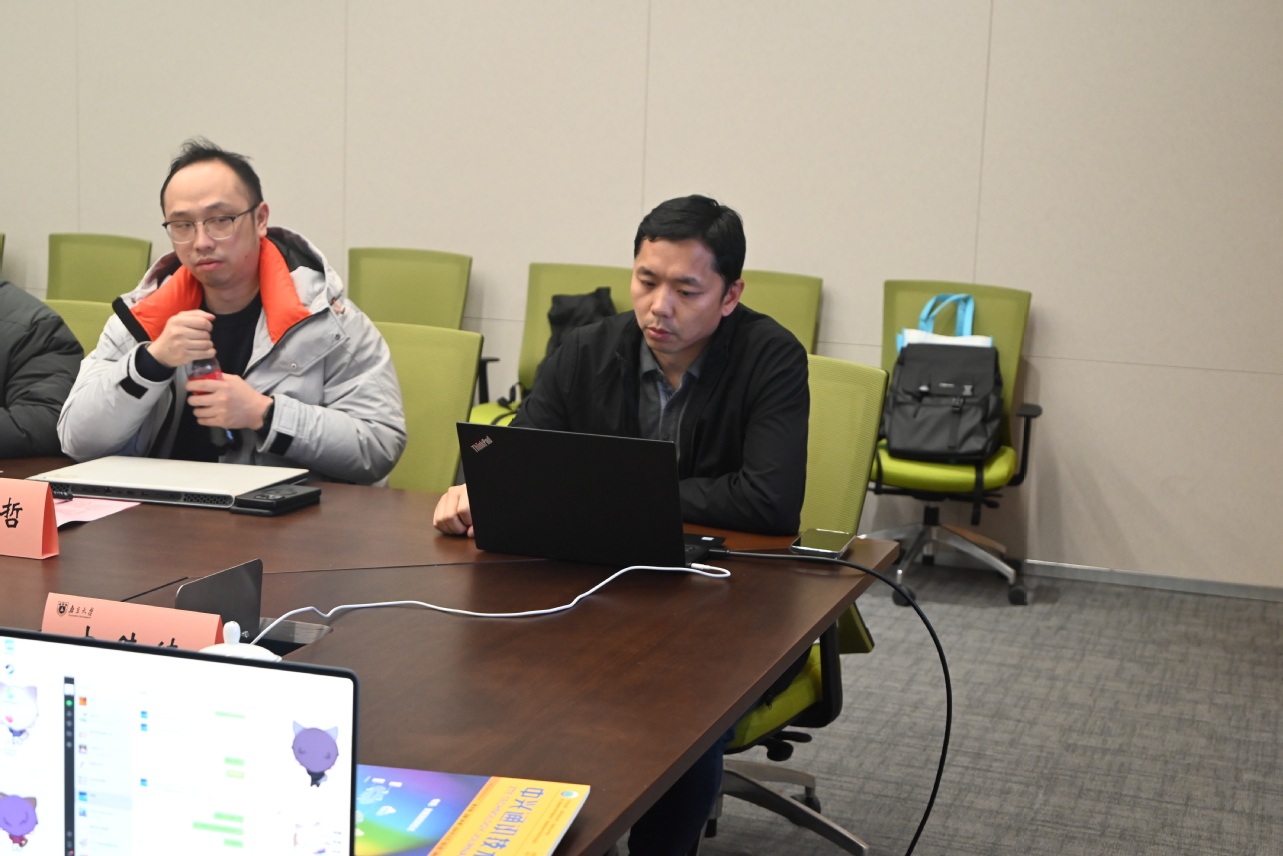
Liu Yanbin elaborated on the technical cooperation plan. Afterward, the teachers from the School of Intelligence Science and Technology presented their research directions.
Following the introductions, both parties continued to have in-depth discussions on IAR cooperation and project implementation. They agreed to maintain close contact and explore more cooperation possibilities.
